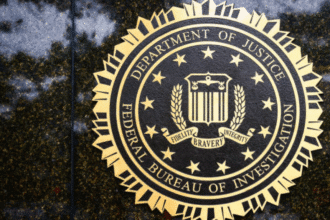A U.S. judge has turned down a suggested plea agreement between Boeing and the Department of Justice (DOJ), severely undermining the aerospace behemoth’s attempts to settle legal concerns related to two fatal incidents involving its 737 Max aircraft. The 2018 and 2019 crashes took 346 lives and severely disrupted households all around.
Why Was the Negotiated Deal Called Off?
The plea agreement, announced in July, mandated Boeing pay a $243 million fine, undertake independent supervision, and admit guilt to one count of criminal fraud. Judge Reed O’Connor disapproved of the deal, though, saying it compromised the court and begged questions about responsibility. The agreement also contained contentious diversity standards for selecting the independent monitor.
O’Connor argued the diversity requirements may erode public confidence since these clauses were “contradictory”. “In a case of this size, it is in the utmost interest of justice that the public is confident this monitor selection is done based solely on competency,” he said. He also attacked Boeing’s and the DOJ’s “shifting and contradictory explanations” on how the diversity clauses will be used.
What Response Did Families Have to the Decision?
The decision was hailed by family relatives of crash victims, who said the suggested agreement fell short. Relieved were Ike and Susan Riffel of California, who lost their sons Melvin and Bennett.
The pair added in a statement, “This deal did nothing to protect the flying public and did not assign anyone responsibility for the deaths of346 people.” “We hope this ruling opens the path for actual justice.”
A lawyer representing several victim families said the outcome was “an excellent decision and a significant victory.” The attorney said, “We anticipate a significant renegotiation of the plea deal that incorporates terms truly commensurate with the gravity of Boeing’s crimes. “
What Are the Failures in Oversight?
The judge’s decision highlighted more general problems with the government’s handling of Boeing’s compliance. O’Connor underlined the importance of the court’s action after years of DOJ monitoring had “failed.”
“At this point, the public interest requires the Court to step in,” he said, referencing Boeing’s alleged violation of a 2021 plea bargain. Even if the details of these transgressions are yet unknown, O’Connor pointed out that attempts by the government to ensure compliance had failed.
Boeing’s admission that it had misled authorities about its flight control system—a malfunction essential to the crashes—led to the first 2021 deal. That agreement meant three years of increased surveillance for Boeing. However, in May, the DOJ said Boeing had broken the conditions of the agreement, which generated more criticism.
Which fresh safety issues have surfaced?
Inquiries concerning Boeing’s safety and quality standards have continued. Early this year, a door panel on a new Boeing aircraft run by Alaska Airlines broke apart soon after takeoff, sparking questions about the aircraft manufacturer’s safety culture. The episode happened just before the three-year monitoring term under the contract signed in 2021 ended.
Responding to the breach claims, the DOJ and Boeing offered a fresh plea agreement that O’Connor rejected. Families of crash victims had earlier attacked this updated agreement as a “sweetheart” arrangement, charging it with insulating Boeing from significant responsibility.
Whose Demand Is for Responsibility?
Judge O’Connor’s ruling forces Boeing’s activities and the DOJ’s handling of the matter to receive more attention. “The parties’ DEI activities only help to erode confidence in the government and Boeing’s ethics and anti-fraud initiatives,” he said. The choice also emphasizes the need for strict control to provide justice for the victims and their relatives.
“It’s time for the [Department of Justice] to demand real responsibility and stop treating Boeing with laxity,” the attorney said.
What Should I Do Next?
Now, responding to the ruling, Boeing and the DOJ have thirty days to create a fresh plan. This comes as Boeing works to bounce back from the shadow of the crashes and later investigates its safety procedures.
The decision marks a turning point in the long-running lawsuit, as it shows that victims’ families and the courts demand a compromise that covers the catastrophe’s scope.
As the Riffel family said, “This judge acted morally. Real responsibility is overdue, not only platitudes.







